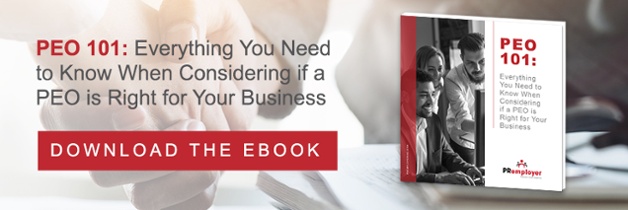
One of the keys to running a successful – and compliant – business, no matter how small, is having an efficient human resources department to oversee employee well-being and other critical organizational functions.
Fortunately, there are several important documents and processes to help guide HR departments in achieving their purpose. With these elements securely in place, your company’s HR team has the infrastructure to execute their responsibilities and long-term strategy in a way that benefits both the business and your employees.
While some of these documents and processes are common knowledge, it’s helpful to have a comprehensive understanding of all the various HR solutions and tools that play an important role in consistency, compliance, and fostering a comfortable yet productive culture at your company.
Key Documents
Maintaining thorough documentation on a regular basis is critical for several reasons: tracking employment history and important events, maintaining consistency, helping to defend against employee claims, and having records in case of legal proceedings. Important documents, according to The Balance, include those legally mandated by the government, those required by company policy and practice, and those suggested by HR best practices.
Examples of critical documentation that should be organized and made available by every HR department include:
An employee handbook. A handbook contains your company’s operating procedures and is used to establish important policies and expectations. This is an essential document because it introduces new employees to the organization’s culture, mission and values; ensures important policies are clearly and consistently communicated across the board; and guides compliance with state and federal laws.
A non-discrimination/anti-harassment policy and complaint procedure. This document may be part of your employee handbook or provided separately, but it is particularly important. Your policy should be specific about what is considered harassment or discrimination, how an employee should file a complaint, and what steps the company will take to address the problem. If a complaint is filed, your records should include written statements from the accuser, the accused, and witnesses.
Employment records. A rather broad category, employee records encompass numerous types of written and factual documentation: a signed application and/or contract, background checks, an I-9 form verifying eligibility to work in the U.S., performance reviews, formal and informal discussions, witnessed policy violations, disciplinary action, investigations, FMLA records, and medical records. According to The Balance, documentation of this nature “provides a written record that may be necessary to support such actions as employee promotion, employee pay raises and disciplinary action – including employment termination."
Key Strategic Processes
Like documentation, standardized and adopted HR processes are integral to streamlining HR management and ensuring the department is accomplishing its essential functions, according to the Management Study Guide.
Examples of important HR processes include:
Planning and hiring. Your HR department will take the lead when it comes to recruiting, selecting, hiring and training employees. They also will handle collecting and sifting through applications; checking references; conducting background checks; and administering offer letters.
It’s critical that there is a set process for executing all these responsibilities so they happen the same way each time you fill an empty position. For instance, the HR department should standardize whether open positions are posted for existing employees before going public, conduct a systematized interview process, and treat each potential candidate in the same way. This prevents confusion, mitigates unnecessary work, and creates a streamlined process for recruiting and hiring new staff members.
Orientation and onboarding. Similarly, the HR department should also take a standardized approach to familiarizing new employees with the company, the workspace, and specific responsibilities. Often, HR personnel will meet with a new hire to discuss their salary, the compensation structure, and employee benefits; go over the employee handbook, give insight on opportunities for professional development and promotion; and take care of other important business.
Employee relations, safety and health. If employees face a risk to their health or safety or get hurt on the job, they need to know what to do. Your HR department is responsible for having a complaint-filing process in place and ensuring each employee is aware of what steps to take if they have a negative experience with another employee or carrying out a task at work. As part of this area, HR should also have a standard process and procedure for investigating employee complaints.
FMLA and labor laws. Companies must comply with a variety of labor laws and government legislation, such as the Family and Medical Leave Act (FMLA) and the Fair Labor Standards Act (FLSA). All HR personnel should be familiar with critical labor laws and what actions to take when a work incident calls them into play.
Bolstering Your HR Arsenal
Your HR department plays an invaluable role in protecting, promoting and preserving the integrity of your company. It’s important that they are supported and equipped with the right tools to help them fulfill their critical responsibilities and overall purpose. PRemployer has the experience and resources to help you develop key HR documents and processes that align with your company’s culture, values, and mission and can guide HR proceedings. Discover how partnering with a PEO can improve your HR strategy and promote the success of your business.

